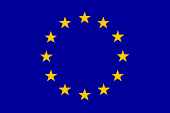Course description
Data sharing and re-usability of research data is of increasing importance in quantitative social science. Not only is transparency and replicability of research data and research findings considered an integral part of good scientific practice. In addition, more and more funders, like the European Commission, and Journals require Open Data of high quality that can be re-used by researchers for replication as well as for new (research) purposes.
Ensuring transparency in research is not only a matter of creating new research data, but also of re-using already existing information. The workshop focuses on the idea of Open Science and Open Data, taking data creation as well as data re-use into account. On the one hand, it introduces the FAIR principles to guide researchers in creating re-usable research data. On the other hand, the workshop discusses the re-use of already existing research data and relevant aspects to keep in mind, working with intellectual property of others. With regard to the re-use of existing data, it introduces a (free) tool that helps researchers in the process of harmonizing their data. The workshop furthermore discusses aspects of legal and analytical re-usability as well as of replicability of research findings, in terms of Open Codes, e.g. in the context of data harmonization.
For a full length syllabus of this course, please click here.
About the lecturers:
Dr. Sebastian Netscher is a member of CESSDA Training, located at the GESIS Data Archive, designing and delivering workshops on research data management. Previously, he worked for the secretariat of the Comparative Study of Electoral Systems (CSES) at the GESIS Data Archive in Cologne. Sebastian specializes in data harmonization and data management. His research interests are political science, investigating individual political knowledge and differences in political systems.
Dr. Anja Perry joined the GESIS Data Archive in 2016 and works in data acquisition. From 2012 until 2016 she worked for the German PIAAC research team at GESIS and was responsible for archiving and distributing the German PIAAC data. Anja completed her PhD thesis “Decision Making in Innovation and Entrepreneurship” at the Max Planck Institute of Economics and DFG Graduate College „The Economics of Innovative Change” at the University of Jena in 2010. After that she worked for the German Federal Statistical Office. Her research interests are skill mismatch, entrepreneurs' skill use and low literacy.
Anna K. Schwickerath is a member of the CESSDA Data Discovery Group at GESIS - Leibniz Institute for the Social Sciences. She is currently working on her PhD on „Corruption in the context of United Nations Peacekeeping operations“. Anna works for the Horizon 2020 projects SERISS and FOSTER Plus, where she currently develops modules for a researchers’ training toolkit on Open Science.
Keywords
Open Science, FAIR Data, Data Re-Use, Data Harmonization, Study planning, Archiving and registering
Target group
Participants will find the course useful if they
- conduct quantitative social science research and want to create FAIR data or to comply with grant requirements on Open Science and Open Data;
- re-use already existing data and want to increase transparency in research data and research findings.
Learning objectives
By the end of the course participants will:
- Be familiar with the idea of Open Science and its basic principles
- Know about the idea of FAIR Data and how to produce it
- Have gained knowledge of obstacles and conditions when re-using existing data (secondary data analyses)
- Have gained insights into a number of guidance tools that will support them in the process of introducing Open Science elements to their research
Prerequisites
Participants should be experienced in conducting and (re-)using quantitative research data and be well-versed in using one of the main statistical software packages, such as Stata, SPSS or R.

 Unless otherwise stated, all materials created by the FOSTER consortium are licensed under a CREATIVE COMMONS
ATTRIBUTION 4.0 INTERNATIONAL LICENSE.
Unless otherwise stated, all materials created by the FOSTER consortium are licensed under a CREATIVE COMMONS
ATTRIBUTION 4.0 INTERNATIONAL LICENSE.
 This project has received funding from the European Union’s Seventh Framework Programme for research,
technological development and demonstration under grant agreement no 612425.
This project has received funding from the European Union’s Seventh Framework Programme for research,
technological development and demonstration under grant agreement no 612425.